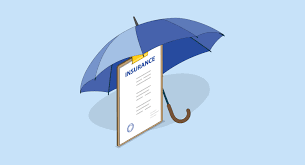Umbrella Insurance
Umbrella insurance stands as a pillar of financial security, offering unparalleled protection against unforeseen circumstances. In essence, it acts as an additional layer of coverage, extending beyond the limits of traditional policies. Understanding the nuances and benefits of umbrella insurance is pivotal in safeguarding one’s assets and securing peace of mind.

The Significance of Comprehensive Coverage
In today’s unpredictable world, financial security reigns supreme. Traditional insurance policies often come with limitations, leaving individuals vulnerable to substantial financial losses in the face of lawsuits or unforeseen events. Herein lies the significance of umbrella insurance—it provides comprehensive coverage, bridging the gap where traditional policies fall short.
Maximizing Coverage: Strategies and Considerations
Assessing Individual Needs
Tailoring insurance to individual needs is paramount. Conducting a thorough assessment of assets, liabilities, and potential risks lays the foundation for optimal coverage. From real estate holdings to investments and beyond, every aspect of one’s financial portfolio should be meticulously evaluated to determine the appropriate coverage limits.
Understanding Policy Components
Delving into the intricacies of umbrella insurance policies unveils a plethora of components and provisions. From liability coverage for bodily injury and property damage to protection against slander and libel, each facet serves a distinct purpose. Familiarizing oneself with these components is essential in maximizing the efficacy of umbrella insurance.
Identifying Coverage Gaps
Identifying coverage gaps within existing insurance policies is a crucial step in fortifying one’s financial fortress. While traditional policies offer baseline protection, they may fall short in scenarios involving significant liability claims. By pinpointing these gaps, individuals can tailor umbrella insurance to fill the void, ensuring comprehensive coverage across all fronts.
Consulting with Experts
Navigating the landscape of insurance can be daunting, necessitating the expertise of seasoned professionals. Consulting with insurance agents or financial advisors can provide invaluable insights into the nuances of umbrella insurance and its implications on overall financial planning. Leveraging their expertise and guidance can streamline the process of maximizing coverage and securing peace of mind.
The Bottom Line: Safeguarding Your Financial Future
In a world fraught with uncertainties, proactive measures are essential in safeguarding one’s financial future. Umbrella insurance stands as a beacon of protection, offering comprehensive coverage that transcends the limitations of traditional policies. By understanding its nuances, tailoring coverage to individual needs, and consulting with experts, individuals can unlock the umbrella insurance goldmine and embark on a journey towards unparalleled financial security

Umbrella insurance is like a hidden treasure trove in the realm of insurance, offering a wealth of coverage that can shield you from unexpected financial storms. However, many individuals overlook its potential or fail to fully utilize its benefits. Here’s how you can unlock the umbrella insurance goldmine and maximize your coverage:
- Understanding Umbrella Insurance: Before delving into maximizing coverage, it’s crucial to grasp what umbrella insurance entails. Essentially, it’s an additional layer of liability coverage that extends beyond the limits of your primary insurance policies, such as auto or homeowners insurance. It kicks in when the liability limits of those policies are exhausted, providing extra protection.
- Assessing Your Risks: Take stock of your assets, lifestyle, and potential liabilities. Consider factors such as property ownership, vehicles, recreational activities, and the likelihood of being sued. The goal is to identify areas where you may be vulnerable to substantial financial losses.
- Determining Coverage Needs: Once you’ve assessed your risks, calculate the amount of coverage you need. Your umbrella policy should ideally cover your net worth and future earnings potential. While there’s no one-size-fits-all approach, a common recommendation is to have coverage equal to at least your total assets.
- Evaluating Existing Policies: Review your current insurance policies to understand their coverage limits and exclusions. Determine where there may be gaps or insufficient coverage. Your umbrella policy should complement your existing coverage, filling in any gaps to provide comprehensive protection.
- Customizing Your Policy: Work with an insurance agent or broker to tailor your umbrella policy to your specific needs. Consider add-ons or endorsements that provide extra protection for unique risks, such as libel, slander, or dog bites. Customizing your policy ensures that you’re adequately covered for all potential liabilities.
- Bundling for Savings: Many insurance companies offer discounts for bundling multiple policies together. Consider bundling your umbrella policy with your primary auto, home, or renters insurance for potential cost savings. Not only does bundling save you money, but it also simplifies the insurance process by consolidating your policies with one provider.
- Regular Policy Reviews: Life circumstances and financial situations change over time. Schedule regular reviews of your insurance policies to ensure they still align with your needs and coverage requirements. Update your umbrella policy as necessary to reflect any significant changes in assets, liabilities, or lifestyle.
- Risk Management Strategies: Mitigate potential liabilities through proactive risk management strategies. This may include implementing safety measures at home, maintaining adequate auto insurance coverage, or establishing legal structures such as trusts or LLCs to protect assets. By reducing your exposure to risks, you can minimize the likelihood of needing to rely heavily on your umbrella policy.
- Professional Guidance: Consult with insurance professionals, such as agents, brokers, or financial advisors, who can provide expert guidance on maximizing your umbrella coverage. They can help you navigate complex insurance policies, understand legal implications, and make informed decisions to safeguard your financial well-being.
Frequently Asked Questions (FAQ)
1. What is umbrella insurance, and how does it work?
Umbrella insurance is a type of liability insurance that provides additional coverage beyond the limits of your primary insurance policies, such as auto or homeowners insurance. It offers an extra layer of protection against lawsuits and other financial liabilities.
2. Who needs umbrella insurance?
Anyone with assets to protect or potential exposure to liability risks can benefit from umbrella insurance. This includes homeowners, vehicle owners, landlords, business owners, and high-net-worth individuals.
3. What does umbrella insurance cover?
Umbrella insurance typically covers liability claims related to bodily injury, property damage, libel, slander, defamation, and certain legal defense costs. It does not cover damage to your own property or injuries to yourself or your family members.
4. How much umbrella insurance coverage do I need?
The amount of coverage you need depends on factors such as your assets, income, lifestyle, and potential liability risks. A common recommendation is to have coverage equal to at least your total assets, but you may need more based on your individual circumstances.
5. What are some examples of when umbrella insurance can be beneficial?
Umbrella insurance can provide protection in various scenarios, such as if you’re found liable for a serious car accident, your dog injures someone, a guest is injured on your property, or you’re sued for defamation or copyright infringement.
6. Can I purchase umbrella insurance as a standalone policy?
In most cases, umbrella insurance is not available as a standalone policy. Instead, it’s typically added onto an existing homeowners, renters, or auto insurance policy as an endorsement or rider. However, some insurance companies may offer standalone umbrella policies.
7. Is umbrella insurance expensive?
The cost of umbrella insurance varies depending on factors such as the amount of coverage, your risk profile, and the insurance company. However, considering the amount of coverage it provides, umbrella insurance is often relatively affordable, especially compared to the potential financial consequences of a lawsuit.
8. Can I increase my umbrella insurance coverage limits?
Yes, you can typically increase your umbrella insurance coverage limits by purchasing additional coverage from your insurance provider. However, there may be limits to how much coverage you can obtain based on your insurer’s underwriting criteria.
9. Do I need umbrella insurance if I already have liability coverage through my homeowners or auto insurance?
While homeowners and auto insurance policies provide liability coverage, their limits may not be sufficient to fully protect your assets in the event of a major lawsuit. Umbrella insurance provides additional coverage beyond the limits of your primary policies, offering an extra layer of protection.
10. How can I purchase umbrella insurance?
To purchase umbrella insurance, contact your insurance agent or broker. They can help you assess your coverage needs, customize your policy, and provide quotes from multiple insurance companies to find the best coverage at the most competitive price


